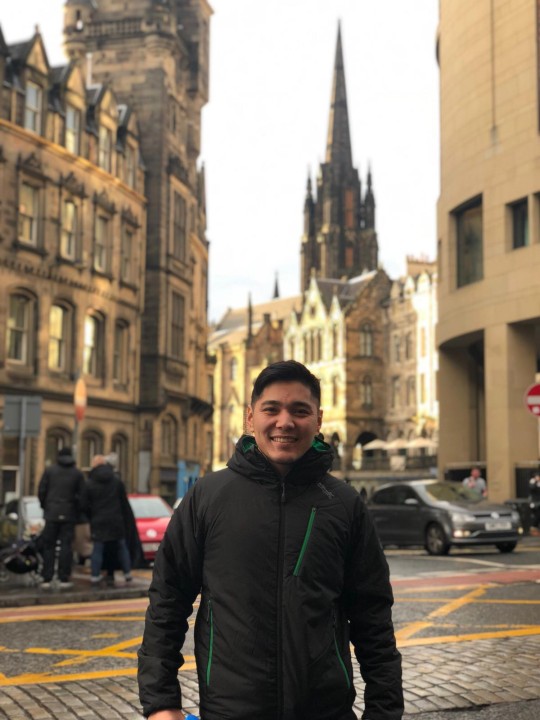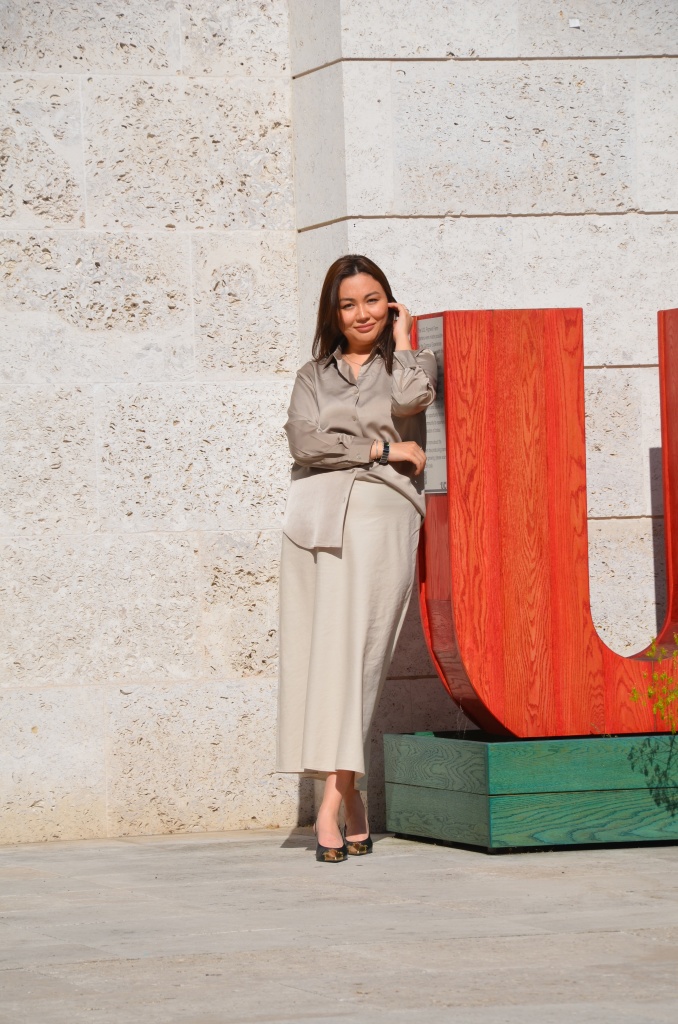We spoke with young people from Kazakhstan and asked them to share their experience of applying to University College London, the specifics of studying there, and advice for those who dream of attending one of the best universities in the world.
Miras Maksut, 29 years old, city — Atyrau, electrical engineer, linkedIn

Choosing the university
I chose University College London for several reasons. Firstly, UCL consistently ranks among the top universities in the world — at the time of my application, it was in the top 10 according to Times Higher Education and QS World University Rankings. Secondly, the MSc in Power Systems Engineering program perfectly matched my professional interests.
And, of course, London is a global hub for engineering and business, offering countless career and professional opportunities.
The application process
The admission process includes submitting an online application, providing academic documents, a personal statement, and letters of recommendation. For me, the most challenging stage was writing the personal statement — it needs to be clear, logical, and reflect your professional goals while justifying your choice of program. It was also crucial to meet all deadlines and prepare the documents correctly.
The main focus is on academic performance: GPA requirements vary depending on the applicant’s country of origin. The university takes into account national education systems and adjusts its criteria to match the applicant's academic background.
Proof of English proficiency is mandatory — typically an IELTS score of 6.5-7.0 or higher. Recommendation letters also play an important role — they reflect professors’ opinions on your potential. Additional achievements, such as participation in projects, leadership, and volunteering are a big advantage.
During my preparation, I found YouTube channels like IELTS Liz and BBC Learning English very helpful, as well as Coursera and edX courses on energy, sustainability, and power supply systems. I also benefited from the book How to Write a Winning Personal Statement for Graduate and Professional School, scientific journals like IEEE, and Energy Policy.
Studying at UCL
The main difference is the emphasis on independent learning, critical thinking, and practical application of knowledge. In the UK, professors don’t provide ready-made solutions — students are responsible for mastering the material. The workload is high, especially considering that the master’s program lasts only one year.

I completed my bachelor’s degree at Nazarbayev University, which has been developed in partnership with UCL since its foundation. That’s why the UCL teaching approach felt familiar and comfortable — I didn’t have to make a radical adjustment.
If you are simultaneously involved in research projects or internships, free time becomes very limited, but it’s an excellent opportunity to develop self-organization and time management skills.
A significant portion of the final grade is based on final exams. Professors provide detailed feedback, pointing out both strengths and areas for improvement. There is also an opportunity to attend office hours — one-on-one consultations with lecturers.
UCL gives access to an extensive online library, research centers, and laboratories. The university career center organizes training sessions, job fairs, workshops, and meetings with leading companies. Thanks to this center, I received a job offer from China Light and Power in Hong Kong. The university also actively supports students who wish to engage in research or applied projects, as well as internships.
Recommendations
A UCL degree is highly valued by international employers — especially in Europe, the UK, and even in Asia.
In addition to academic knowledge, studying at UCL helps develop key skills — critical thinking, working in a multicultural environment, effective communication, and the ability to adapt to an international professional setting. Another important advantage is access to a global alumni network and extensive networking opportunities.
I recommend starting preparation as early as possible. Pay special attention to English — it’s the key to studying abroad. I know many talented people who failed to get in simply because of insufficient language skills. Take part in competitions, volunteer and research projects, and develop your critical thinking. It’s also useful to work for a year or two in the industry before pursuing a master’s — it helps you better understand what you want to study and why.
Saltanat Kushaliyeva, 36 years old, city — Astana, urban architect, linkedin
Choosing the university
My interest in UCL, specifically the Bartlett School of Architecture, began when I was applying for my bachelor’s degree. I considered several leading architecture schools in the UK, and at that time, I chose the Manchester School of Architecture. Studying there gave me an important start in my career.
The desire to study at UCL has stayed with me since then. Today, the university remains a global leader in architecture and urban planning education. The Bartlett School of Planning is one of the leading schools in Europe in urban design and planning. It combines academic rigor with a practical approach and actively engages with the professional community.
For me, it was important to gain a high-quality education with a strong theoretical foundation in a city that is actively working on sustainable development and urban transformation.
The application process
I had offers from other universities and initially underestimated the level of competition at UCL. I thought my Manchester degree, academic success, and volunteer experience would speak for themselves.
Later, I applied to a program that, as it turned out, didn’t fully match my expectations, and the situation was complicated by the uncertainty caused by the pandemic.
Only after carefully analyzing the course modules and aligning them with my own experience was I able to craft a truly strong application. That’s when I finally received the long-awaited offer for the MSc Urban Design and City Planning program.
As an architect, I deliberately chose a program that goes beyond designing individual objects and provides a deeper understanding of the processes shaping urban environments.
Academic performance, experience, recommendations, and involvement in social projects are all important. But none of this gives an automatic guarantee. The key is to understand why you want this program and where you want to go next. Universities are not looking for “perfect” candidates but for those who are genuinely passionate about their field and ready to invest in learning.
Studying at UCL
Studying requires a high level of independence, critical thinking, and stress resilience. Professors don’t give direct answers — it’s essential to be able to justify your point of view.
The academic environment is highly competitive: the strongest students from all over the world come here. In addition to studying, you have to consider cultural differences and learn to work in teams — this often determines the success of joint projects.

Assessment is based on essays, presentations, projects, and group assignments. Each task comes with detailed feedback and recommendations. An important point: in group work, individual contributions are evaluated. If it’s uneven, it affects the final grade.
UCL provides access to some of the largest libraries, academic databases, and career services. Job fairs, workshops, and HR consultations are held regularly.
UCL is an inclusive university. It offers student support services for various needs: academic mentoring, psychological counseling, and adaptation resources — all of which help cope with the heavy workload.
Recommendations
A degree alone won’t open all doors — that’s a myth. Everything depends on how you develop, what interests you, and how consciously you move toward your goals.
That said, a UCL degree is a strong advantage. It gives access to international consulting firms, research centers, and sustainability projects. Moreover, London is a professional hub with plenty of events where you can meet potential employers.
I recommend first understanding why you need this education. Not only what you can gain from the university, but also what you can bring to it. This mindset changes everything.
I believe a master’s degree is particularly valuable for those who already have at least two years of practical experience. In that case, the knowledge is perceived more deeply and becomes truly meaningful.
Be honest with yourself: are you going for prestige, for the city, or for something that truly resonates with you?
One of the biggest mistakes is writing a generic personal statement without tailoring it to the specific program. Students often fail to analyze how one program differs from another, even though all the information is publicly available. Many also underestimate the importance of recommendation letters. It’s crucial that all parts of the application — motivation, experience, and recommendations — work in a single logical direction.